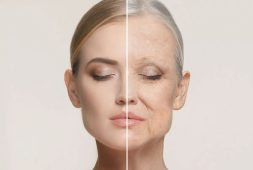Why Mosquitos Bite And What You Should Actually Be Using To Prevent Them From Sucking Your Blood

Are you one of those people that gets totally eaten up by mosquitos, or are you the one they usually leave alone? And have you noticed that citronella candles are doing nothing to protect your precious skin from these bloodsuckers?
That’s because science explains how mosquitos aren’t just simple, blood-sucking pests that feast on the same people in the exact same way. While these tiny creatures are normally referred to as just ‘mosquito,’ there are actually 112 genus of the mosquito with at least 3,500 species that belong to that name. And that’s why a number of these bugs have a variety of ways to find prey and get around whatever protection humans attempt to use to deter them from biting in the first place.
Let’s look at the points we need to consider.
How Do Mosquitos Find You?
Mosquitos use carbon dioxide (CO2) from animal and human breath to guide them to their future host. When you see them zigzagging in the air, this is actually a sign that they’ve lost the CO2 scent they were following, and are hoping to get a whiff of it once more. When they get into their general position, they then use their visual features to search for signs of heat and olfactory smells, which give them the exact position they need to take a bite.
Oftentimes, human sweat increases the ‘natural olfactory cues of lactic acid, ammonia, and other chemicals’ that mosquitos use to find their prey. This simply means that people that sweat less normally don’t attract mosquitos as much as their sweaty counterparts.
Another way mosquito can zero in on you is through sweet-scented deodorant, shampoo, body wash and other types of products. Of course, considering people haven’t always used these types of products through, mosquito don’t actually need these scents to find their targets.
How Important Are Blood Types?
Another study from 1980 looked at blood types and their effect on mosquito host-detection ability. The study found that looking into blood types and malaria rates showed that those with blood type A – which were only 17.6% of the entire control group – made up 29% of the cases of malaria. Meanwhile, type O trialists – which were twice as many as the type A – only had 22% of the malaria cases.
Yet, in contrast to the older study, a newer study looked into how blood type and the secretions from a person’s skin saw that blood type O secretors were actually more vulnerable than the other blood types. As a result, blood types and mosquito bites are still a bit of a mystery.
What Preventive Measures Can You Take?
Probably one of the best ways to protect ourselves against mosquito bites is by using simple, physical measures such as using high socks, long sleeve shirts, or pants. But who wants to wear these types of clothes in the heat of summer?
Modern technology has led designers to create outdoor wear that actually has mosquito repellent threaded into the material somehow, and amazingly, it’s been scientifically proven to work. But as times goes by, the treatment fades, and Canada is worried about the chemicals used, such as permethrin, which they don’t believe should be close to the skin, more so for children. Moreover, there’s even very popular brand in England that has recommended to throw away their treated clothes after using them just a number of times because they lose their efficacy.
What About DEET?
The chemical N,N-Diethyl-meta-toluamide, otherwise known as DEET, is one of the most effective forms of mosquito deterrents. In fact, it was what the U.S. Army used as their insect repellent before it became a popular household name.
But there has been a lot of arguments about his safety, despite being thoroughly studied and considered quite safe. A studydone in 2020 shows the scientific evidence that claims its safe.
Meanwhile, study authors from a 2002 study that was published in The New England Journal of Medicine explained, “This repellent has been subjected to more scientific and toxicological scrutiny than any other repellent substance. DEET has a remarkable safety profile after 40 years of use and nearly 8 billion human applications.” The study concludes, “When applied with common sense, DEET-based repellents can be expected to provide a safe as well as long-lasting repellent effect.”
Many of the concerns are due to worries over these products having too much DEET in them or from using them in the wrong way. And these concerns were valid, despite causing very rare side effects such as skin irritation, burning eyes and headaches, breathing difficulty, and even seizures after someone accidentally ingested it or put too much on.
In Canada, they recommend to not use any product that has over 30% concentration, as well as a ceiling of 10% for kids 12 years and below. And as an additional precaution, most of the manufacturers of these DEET products advise customers not to use them on damaged skin and to wash the product off when it is no longer needed.
How About Other Alternatives to DEET?
A good alternative to DEET is called icaridin, which is also known as picaridin. And it can provide up to 7-hours of equal protection. It is also known to be effective against a variety of pests aside from mosquitos, like gnats, ticks, fleas, and flies while being both odorless and colorless. A 2010 study showed that a cream or spray with a 20% concentration gave protection of at least 12 hours against ticks.
The Science Behind Citronella
Citronella is a compound normally found in candles meant to repel mosquitos, but there was a study that showed it as completely ineffective against mosquitos. But the study authors also believe that it’s due to the plant oils linalool and geraniol, and some others used to make candles that could be repelling the mosquitos.
Other studies that researched linalool and geraniol infused citronella candles found that they were, in fact, very effective at repelling mosquito, with linalool at 85% and geraniol at 71%.
Other products such as bug zappers and high-frequency sound machines are said to disrupt mosquitos, as explained by another study. It explained, “We are not aware of any scientific study showing that mosquitos can be repelled by sound waves and therefore we consider these devices as the modern equivalent of snake oil.”
A writer for Canada’s McGill Office for Science and Society, Ada McVean, explains that other products that use soybean oil are also marketed as mosquito repellents, but their effectivity is probably due to the geranium oil often used in citronella candles.
McVean advises that if you want to keep mosquitos away, “You should stay as scent-free as possible, wear light clothes, avoid bogs, and use an effective repellent (such as those containing DEET or icaridin).”



